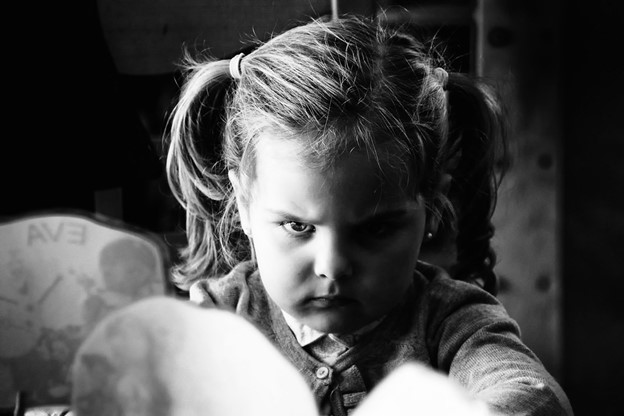Mom Wants to Go to the Twins Days Festival—One of Her Twins Says No
A mom of eight-year-old identical twin girls contacted me for help managing one of her daughters, whom I’ll call G. The mom told me that G talks often about how she dislikes being a twin. The mother says she walks around with a scowl on her face. She becomes annoyed when someone calls her the wrong name or refers to her as one of the twins. The pandemic exacerbated G’s hostilities. While G and her sister were able to attend their private school, the change in teachers, class arrangements, and mask requirements heightened G’s sensitivity to being mistaken or undifferentiated.
The mother is increasingly worried because family and friends are now labeling G as the “bad” twin. While her sister is described as easygoing and happy, G’s grumpiness has become a hallmark of her personality. The mom related that her daughters got along very well until a year ago. While they never were the type of twins that looked after one another, their relationship seemed fine. When G began expressing her resentment about being a twin, the mom was surprised and personally hurt. She has been completely seduced by the twin mystique. She told her daughters that for her birthday, she wanted to take them to the Twins Days Festival in Twinsburg, Ohio. G begged her not to follow through with this. After my talk with the mom, she agreed to reconsider her plans.
For reasons I don’t yet fully understand, this mom is overly invested in her daughters’ twinship. She is shocked and surprised by G’s intense animosity over being a twin. As a result, the mother has little understanding about her daughter’s feelings. Most of G’s discontent and annoyance are directed toward her mom, not her sister. The mom and I brainstormed some strategies to help G manage her frustrations. I hope to have further discussions with this mom so we can explore how her own upbringing may be informing her fascination with the twin bond.
Image courtesy of Luis Marina (CC BY 2.0)



We all assume that identical twins enjoy the limelight but although many are happy to have the attention, not all do. For some it’s a deep source of embarrassment and does not get any better as they grow up, especially if they are accosted in the street by strangers because mistaken for their twin, Trying to establish a separate identity can backfire. Audrey Twin therapist and author, Reigate, UK.
I am the mother of nearly 14 years old identical twin girls. There has always been a slight size difference to my daughters which I was able to capitalise on while the children were younger. I could introduce them to people as sisters. At this younger age I could also mange the different hair cuts and the styling of clothing. It’s amazing how effective even introducing twins as ‘sisters’ is for the engagement of other people with the girls as individuals.
What is very hard is parents of the kids friends and teachers who encourage the twinship. … people who group them together … my daughters have a resentment to this as well. Financially I have not always been able to separate them as much as I would have like – There is a socio economic factor to separation … being able to afford two rooms, have the time to take to two schools and two sports.
We have been going through some intense processes of further separation at the moment. One twin is singular and pioneering socially. One leans on the other for socialising … this has resulted in a recent wholesale “stealing” of the original friends finders social network. It has been brutal and stressful to navigate these big feelings. I am hoping the silver lining is strong boundaries and a recognition of separation lesson learnt young.
Twins and red- headed kids are the last bastions of socially approved rudeness. Would love a campaign to ease the myth/ burden of twin ship.